#Lea padovani
Text
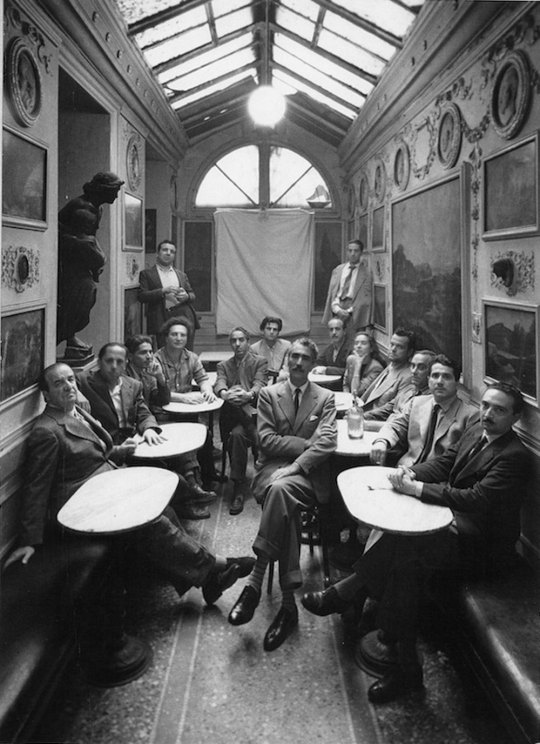
Aldo Palazzeschi, Goffredo Petrassi, Mirko, Carlo Levi, Pericle Fazzini, Afro, Renzo Vespignani, Libero de Libero, Sandro Penna, Lea Padovani, Orson Welles, Mario Mafai, Ennio Flajano, Vitaliano Brancati and Orfeo Tamburi. Caffé Greco, Rome 1948. Photo Irving Penn
#Aldo Palazzeschi#Goffredo Petrassi#Mirko#Carlo Levi#Pericle Fazzini#Afro#Renzo Vespignani#Libero de Libero#Sandro Penna#Lea Padovani#Orson Welles#Mario Mafai#Ennio Flajano#Vitaliano Brancati#Orfeo Tamburi#irving penn
85 notes
·
View notes
Text

Lea Padovani-Lloyd Bridges "Tres pasos al norte" (Three steps north) 1951, de W. Lee Wilder.
6 notes
·
View notes
Text
23 giugno … ricordiamo …
23 giugno … ricordiamo …
#semprevivineiricordi #nomidaricordare #personaggiimportanti #perfettamentechic
2022: Ernst Jacobi, attore e doppiatore tedesco. Attore attivo principalmente in campo televisivo e teatrale, tra cinema e – soprattutto – televisione, ha partecipato ad oltre un centinaio di differenti produzioni a partire dalla metà degli anni cinquanta, lavorando in vari film TV. (n.1933)
2021: Jackie Lane, attrice britannica Ha fondato un’agenzia di doppiaggio, Ad Voice. (n. 1947)
2019:…

View On WordPress
#23 giugno#23 giugno morti#Adelbert Elliott Dexter#Al Northon#Alfio Caltabiano#Corinne Calvet#Dick Van Patten#Edu del Prado#Elliott Dexter#Ernst Jacobi#Gigi Rizzi#Hanne Hiob#Hanne Marianne Brecht#Jackie Lane#Lea Padovani#Magali Noël#Mathias Taube#Maureen O&039;Sullivan#Odile Versois#Peter Falk#Peter Michael Falk#Piero Lulli#Rosina Lawrence#Simonetta Zauli#Stephanie Niznik#William S. Hart#William Surrey Hart
2 notes
·
View notes
Text










1955 Sophia Loren enchants De Sica in enchanting Sorrento
0 notes
Video
Lea Padovani by Truus, Bob & Jan too!
Via Flickr:
Italian postcard by Nannina, Milano. Lea Padovani (1923-1991) was an Italian stage and film actress. She appeared in 60 films between 1945 and 1990. She starred in the French crime film Le Dossier noir/Black Dossier (André Cayatte, 1955) which was entered into the 1955 Cannes Film Festival. Lea Padovani was born in Montalto di Castro, in 1923. Against her father's advice, Lea enrolled at L'Accademia d'Arte Drammatica, the National Academy of Dramatic Art in Rome, which she left in 1944. She made her debut as a soubrette in Garinei and Giovannini's revue 'Cantachiaro'. The following year, she was part of Erminio Macario's company in 'Febbre azzurra'. She demonstrated excellent acting skills and enjoyed great success. Her meeting with Macario led to work in the film industry. She made her film debut with the female leading role in the comedy L'innocente Casimiro/The Innocent Casimiro (Carlo Campogalliani, 1946) starring Erminio Macario. In 1946 she began her long and successful career as a theatre actress with Armand Salacrou's 'Un uomo come gli altri' and with Jean Cocteau's 'I parenti terribili' in Luchino Visconti's Milanese revival. In 1953, she was alongside Ruggero Ruggeri on a tour to London and Paris with 'Enrico IV' and 'Tutto per bene'. In 1954 she was awarded a special Nastro d'Argento (Silver Ribbon award) for her theatrical performances. From 1947 Lea Padovani appeared in international films, such as Una lettera al Alba/Letter at Dawn (Giorgio Bianchi, 1948) and the British social drama Give Us This Day (Edward Dmytryk, 1949) with Sam Wanamaker. Orson Welles originally cast Lea as Desdemona in his 1952 film production of Othello back in 1948. After Welles began the filming in Venice, producer Montatori Scalera informed Welles that he wanted to make Verdi's opera, not the Shakespearean play, so the money ran out and the film was shelved. By the time the film was made years later, Lea had been replaced by Suzanne Cloutier. She starred in the French crime film Le Dossier noir/Black Dossier (André Cayatte, 1955) which was entered into the 1955 Cannes Film Festival. A big hit was the comedy Pane, amore e...../Scandal in Sorrento (Dino Risi, 1955) in which she co-starred with Sophia Loren and Vittorio De Sica. In the 1950s, Padovani also took part in several TV dramas, including Piccole done (Anton Giulio Majano, 1955), Il romanzo di un giovane povero (Silverio Blasi, 1957) and Ottocento (Anton Giulio Majano, 1959-1960). During the 1960s, the stage and television became more important than her film career. In 1990, she made her last film, La putain du roi/The King's Whore (Axel Corti, 1990) with Timothy Dalton and Valeria Golino. Shortly before her death, the actress told writer Renzo Allegri about her encounters with Padre Pio in the late 1950s, asking for help for one of her lovers, who was terminally ill with cancer. She died in 1991 of a heart attack. In 2006, director Oliver Parker directed the film Fade to Black, based on the novel Fade to Black by Davide Ferrario, inspired by a fictional story involving the actress, played in the film by Paz Vega, and the director Orson Welles, played by Danny Huston. In 2012, a theatre named after Lea Padovani was inaugurated in Montalto di Castro by Mayor Sergio Caci and Culture Councillor Eleonora Sacconi. Sources: Wikipedia (Italian and English) and IMDb. And, please check out our blog European Film Star Postcards.
#Lea Padovani#Lea#Padovani#Italian#Actress#Actrice#European#Film Star#Film#Cine#Kino#Cinema#Movie#Movies#Picture#Screen#Filmster#Star#Vintage#Postcard#Nannina#flickr
0 notes
Link
#walterchiari #leapadovani #steno
1 note
·
View note
Text
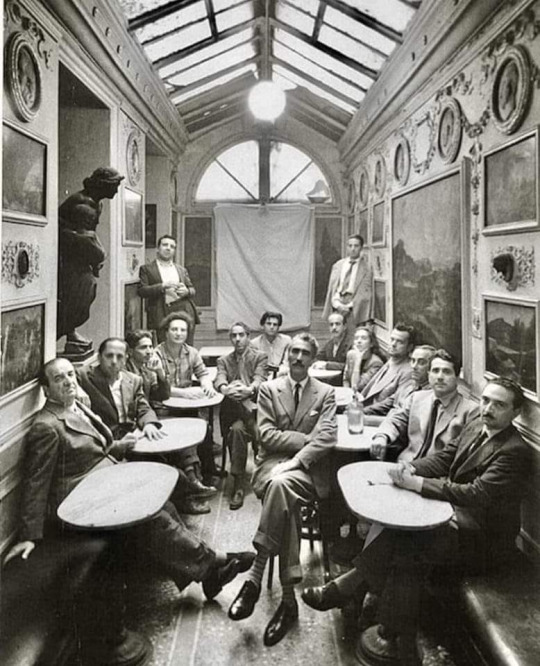
1948 Caffè Greco Roma
Foto di Irving Penn
Aldo Palazzeschi, Goffredo Petrassi, Mirko Basaldella, Carlo Levi, Pericle Fazzini, Afro Basaldella, Renzo Vespignani, Libero de Libero, Sandro Penna, Lea Padovani, Orson Welles, Mario Mafai, Ennio Flaiano, Vitaliano Brancati, Orfeo Tamburi.
#art#arte#cinema#photography#italianart#italy❤️#art painting#photoart#literature#poetry#letteratura#poesia#sculpture#scultura#irving penn#roma#rome#aldo palazzeschi#goffredo petrassi#orson welles#ennio flaiano#vitaliano brancati#orfeo tamburi#Mirko Basaldella#carlo levi#pericle fazzini#afro basaldella#renzo vespignani#libero de libero#sandro penna
61 notes
·
View notes
Text
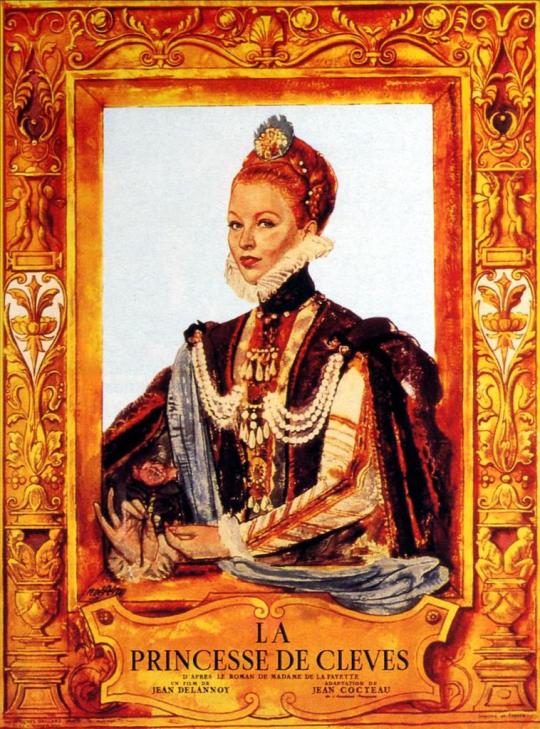
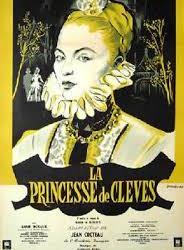
"La Princesse de Clèves" de Jean Delannoy (1961) - adapté du roman éponyme de Madame de La Fayette qui se situe à la cour des Valois dans les dernières années du règne du Roi Henri II (1678) - avec Marina Vlady, Jean Marais, Jean-François Poron, Henri Piégay, Renée-Marie Potet, Lea Padovani, Raymond Gérôme et Annie Ducaux, décembre 2023.
#films#HenriII#Valois#Medicis#LaFayette#Delannoy#Vlady#Marais#Poron#Piegay#Potet#Padovani#Gerome#Ducaux
0 notes
Video
youtube
La Noia [1963] di Damiano Damiani, con Catherine Spaak
TONINO GUERRA
Damiano Damiani, Tonino Guerra e Ugo LiberatoreProduttoreCarlo Ponti
Roberto GerardiMontaggioRenzo LucidiMusicheLuis BacalovScenografiaCarlo EgidiCostumiAngela SammacicciaInterpreti e personaggiCatherine Spaak: Cecilia
Horst Buchholz: Dino
Bette Davis: madre di Dino
Georges Wilson: padre di Cecilia
Daniela Rocca: Rita
Lea Padovani: vedova Balestrieri
Isa Miranda: madre di Cecilia
Leonida Repaci: Balestrieri
Dany París: suora
Daniela Calvino: prostituta
Amos Davoli: barman
Jole Mauro: cassiera
Nazzareno Natale: cameriere
Renato Moretti: Aldo
Edoardo Nevola: Walter
La noia è un film del 1963, diretto da Damiano Damiani e tratto dal romanzo omonimo di Alberto Moravia.
Cédric Kahn nel 1998 ha diretto in francese un film uscito in Italia con lo stesso titolo.
Il personaggio del pittore Bale
0 notes
Text

Quando gli intellettuali si incontravano al bar…
È il 1948 e nel mitico “caffè Greco” di Via dei Condotti a Roma, il maestro della fotografia Irving Penn fa questo memorabile scatto.
Da sinistra a destra:
- Aldo Palazzeschi, scrittore e poeta;
- Goffredo Petrassi, compositore;
- Mirko Basaldella, scultore e pittore;
- Carlo Levi, scrittore e pittore;
- Pericle Fazzini, scultore e pittore;
- Afro Basaldella, pittore;
- Renzo Vespignani, pittore, illustratore, scenografo, incisore;
- Libero de Libero, poeta, narratore, critico d’arte;
- Sandro Penna, poeta;
- Lea Padovani, attrice;
- Orson Welles, attore, regista;
- Mario Mafai, pittore;
- Ennio Flaiano, sceneggiatore, scrittore, giornalista;
- Vitaliano Brancati, scrittore, sceneggiatore, drammaturgo e saggista;
- Orfeo Tamburi, pittore.
Post di Maria Beatrice
0 notes
Text
youtube
Three Steps North (1951) / Crime, Drama, Film Noir / Lloyd Bridges, Lea Padovani, Aldo Fabrizi
0 notes
Text

Lea Padovani (Montalto di Castro, Viterbo, Kingdom of Italy, 28/07/1920-Rome, Italy, 23/06/1991).
4 notes
·
View notes
Photo
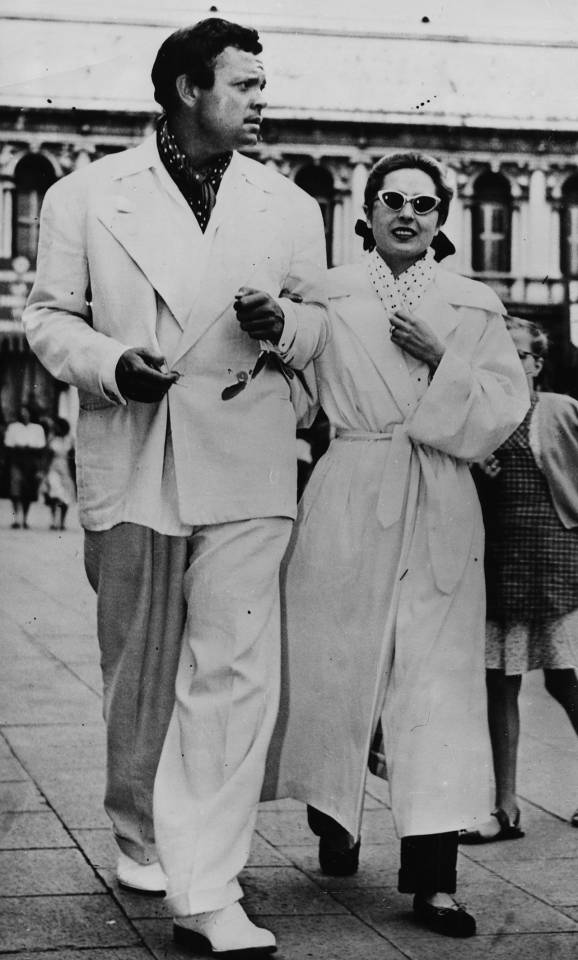
Orson Welles and Lea Padovani on a sightseeing tour following the Film Festival in Venice, 23 August 1948
73 notes
·
View notes
Text
Sophia Loren dances the Mambo Italiano in ‘Pane Amore e...’ (1955) Dir. Dino Risi
#pane Amore e...#Dino risi#sophia loren#Antonio cifariello#Vittorio de sica#Lea padovani#bread love and...#scandal in sorrento#1950s#50s movies#50s film#Italian film#classic film#italian cinema#italian aesthetic#50s fashion#50s aesthetic
280 notes
·
View notes
Photo
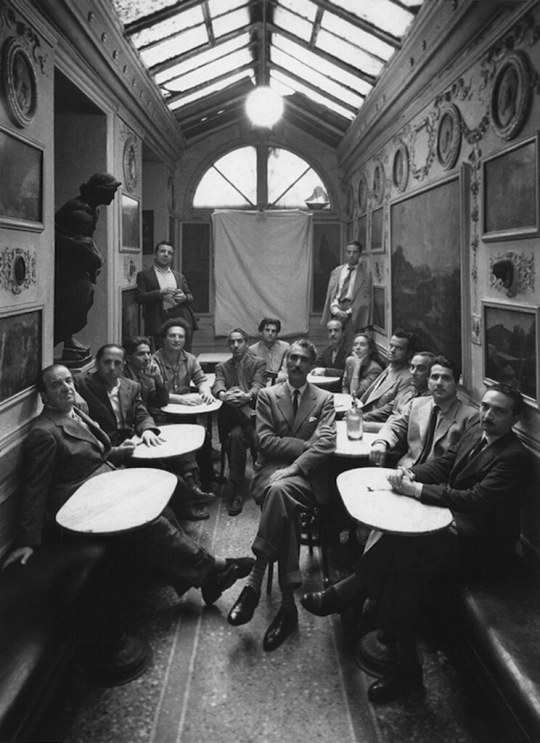
spot-the-orson
caffe greco, rome 48
irving penn
#irving penn#orson welles#caffe greco#Aldo Palazzeschi#Goffredo Petrassi#Mirko#Carlo Levi#Pericle Fazzini#Afro#Renzo Vespignani#Libero de Libero#Sandro Penna#Lea Padovani#Mario Mafai#Ennio Flajano#Vitaliano Brancati#Orfeo Tamburi
62 notes
·
View notes
Photo
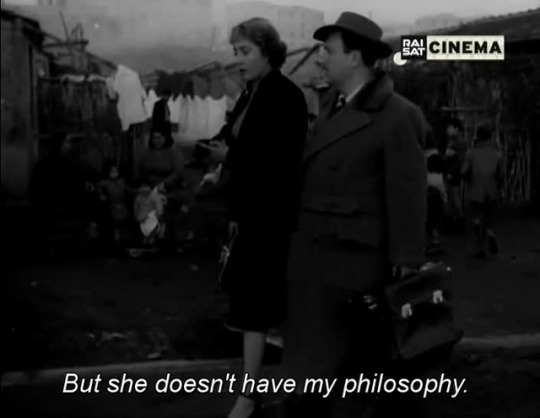
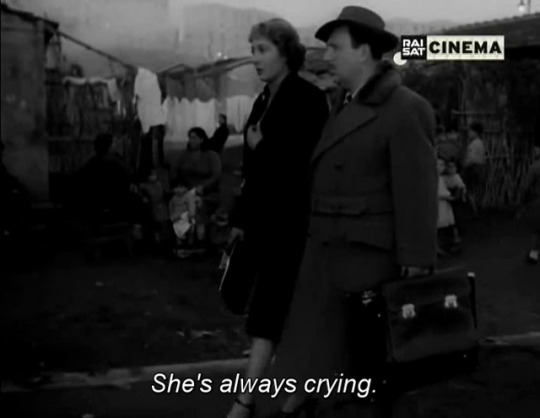
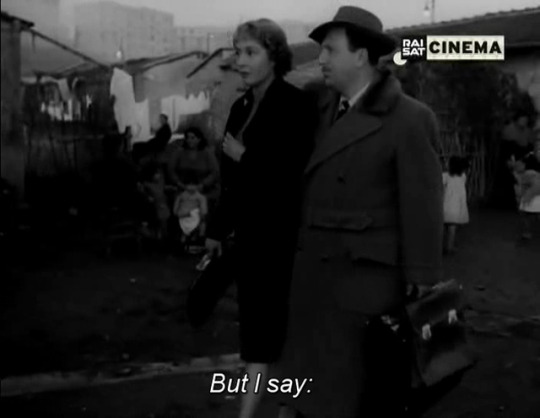
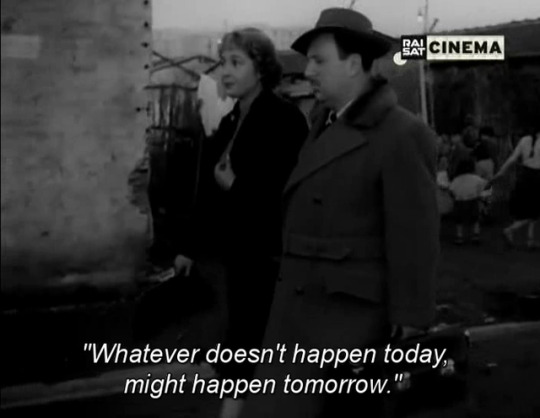
Roma, ore 11 (Giuseppe De Santis, 1952)
#Roma ore 11#Giuseppe De Santis#de santis#quote#cry#tears#1952#optimism#poverty#italy#black and white#Rome 11:00#Lea Padovani
221 notes
·
View notes